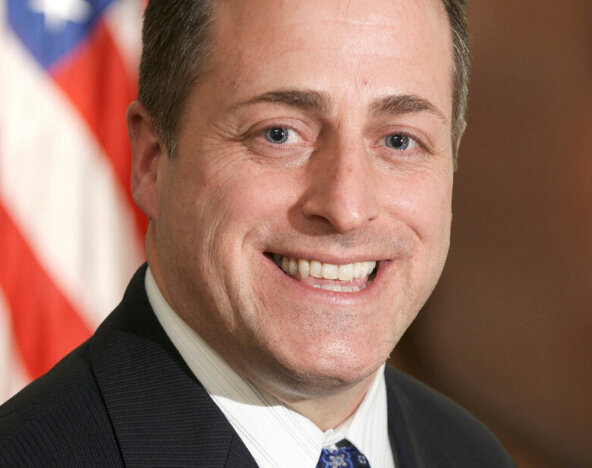Serious pollution in the airspace above is being ignored
Today, everyone is conscious of pollution and its detrimental effects on our environment and health. The most common forms are water, air and plastic pollution, but there is another type of pollution that is severely affecting area residents’ quality of life, and that is noise pollution. Most Nassau County communities must contend with the noise of motor vehicles and trains. But the pollution that has made the quality of life in my 21st Assembly District unacceptable is airplane noise.
The Federal Aviation Administration recently released the tracking data for Kennedy Airport for July. Runway 22L, the runway for arriving flights that fly directly over East Rockaway, Lynbrook, Malverne, Rockville Centre and Valley Stream, received 14,088 flights in July alone — 70 percent of all arriving flights for the month, and close to double the number in July in previous years. Additionally, 22L was the most-used runway at JFK in six of the eight preceding months. While weather conditions or runway repairs may cause the airport to rely more heavily on one runway, there is no reasonable explanation for 22L’s overuse in that nine-month period.
The tracking data demonstrates that the current FAA traffic control system does not fairly distribute runway use at JFK. With 70 percent of all arriving flights, it is impossible to argue that 22L is not being overused while the other runways are being underutilized — to the detriment of 21st District residents. Furthermore, inherent in the data is the fact that a sizable portion of those arriving flights are violating FAA guidelines for the altitude of approaching planes, and increasing the noise experienced by residents.
As a result of the tracking data, my office, along with Mayors Gordon Fox, of East Rockaway; Alan Beach, of Lynbrook; Francis Murray, of Rockville Centre; and Ed Fare, of Valley Stream, sent a letter to the FAA demanding a more equitable distribution of runway use at JFK. The letter not only notes the negative effects on residents’ quality of life, but also the serious health effects of constant airplane noise.
Clearly, a letter to the FAA alone is not enough to address this problem. Additional actions must be taken on the federal, state and local levels to reduce noise pollution. Congress must pass the bipartisan Quiet Communities Act, which would require the Environmental Protection Agency to take over efforts to mitigate aircraft noise over communities near airports. Under this legislation, the Office of Noise Abatement and Control would be reopened. U.S. Rep. Anthony D’Esposito is a co-sponsor of this legislation, and is fighting for its passage.
Specifically, the report could force the FAA to enforce existing glide path altitudes of arriving airplanes, which are consistently being violated without penalty. The report could also reinforce the need for additional federal and state funding for the installation of noise-mitigation equipment, as well as sound-recording stations at and around the airports.
Locally, Hempstead Town Supervisor Don Clavin and the Town-Village Aircraft Safety and Noise Abatement Committee are continuing to pressure the FAA to release unfiltered information, through the Freedom of Information Act, on additional airplane tracking data, sound levels, compliance with FAA guidelines by airplanes on glide-path altitudes and detailed explanations of runway over- or underuse. There are also several local community groups that focus on airplane noise. One, Plane Sense 4 Long Island, provides residents with information on the fight to reduce airplane noise. As well, there are several downloadable apps that allow you to see live flight paths, as well as the altitude of a given flight or the noise level of a landing plane.
We can’t ignore this problem in the hope that it will improve on its own. “Calling noise a nuisance is like calling smog an inconvenience,” former U.S. Surgeon General William H. Stewart once said. “Noise must be considered a hazard to the health of people everywhere.” The current level of airplane noise over our local communities should not be tolerated. It is a significant contributor to a lower standard of living, and is endangering residents’ health.
Brian Curran represents the 21st Assembly District.






